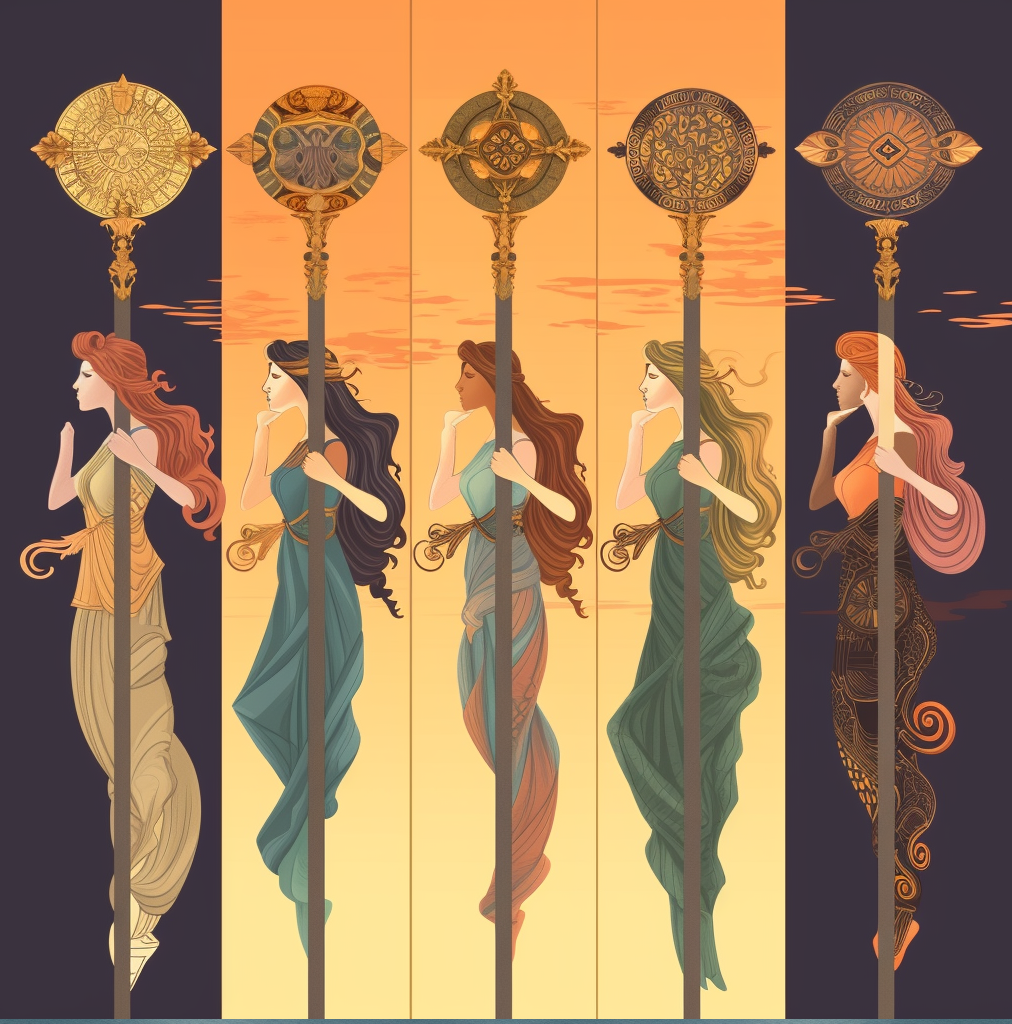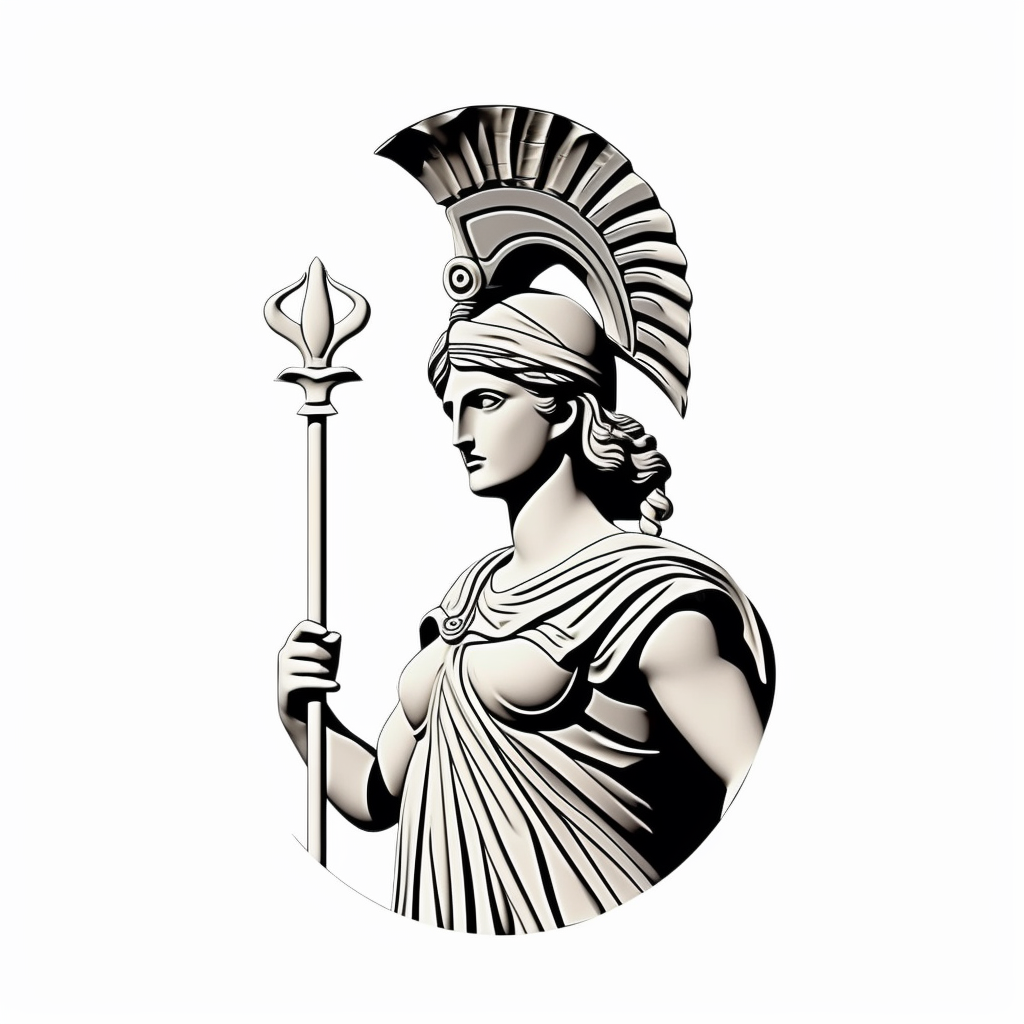
Greek goddesses play a crucial role in Greek mythology, serving as embodiments of various aspects of life, nature, and human experience. They not only represent powerful forces but also shape the narratives and moral lessons that permeate ancient Greek culture. Here, we will explore their significance in various dimensions, including their roles in mythology, their representations in art and literature, and their influence on society and religion.
1. Diverse Domains and Powers
Greek goddesses are associated with a wide range of domains, each reflecting different facets of life. For instance:
- Athena, the goddess of wisdom and warfare, embodies intellect, strategy, and the arts. She is not only a warrior but also a protector of cities, notably Athens, which was named in her honor. Her virginity symbolizes purity and independence, showcasing the strength of women beyond traditional roles.
- Aphrodite, the goddess of love and beauty, represents the more sensual aspects of life. Her influence extends beyond romantic love to themes of desire, attraction, and even conflict, as seen in the myth of the Golden Apple, which sparked the Trojan War.
- Demeter, the goddess of agriculture and fertility, is crucial for understanding the cycles of nature and the importance of the harvest in ancient Greek society. Her relationship with her daughter Persephone explains the changing seasons and underscores maternal bonds.
Each goddess not only governs her domain but also interacts with other deities and mortals, creating complex relationships that drive many myths.
2. Cultural and Moral Lessons
The stories surrounding Greek goddesses often convey moral and ethical lessons that reflect the values of ancient Greek society. For example:
- Artemis, the goddess of the hunt and wilderness, represents independence and the virtues of chastity. Her stories often emphasize the importance of respecting nature and the consequences of hubris when mortals disrespect the natural order.
- Hera, the queen of the gods and goddess of marriage, embodies the complexities of marriage and fidelity. Her jealous and vengeful nature towards Zeus’s lovers serves as a narrative about the challenges of commitment and the societal expectations placed upon women.
These narratives serve not only as entertainment but also as a means of teaching societal norms and values, reflecting the importance of divine intervention in human affairs.
3. Representation in Art and Literature
Greek goddesses have been depicted in various forms of art, literature, and drama, influencing aesthetic and cultural expressions throughout history. Their representations often reflect the ideals of beauty, strength, and moral character:
- In sculpture, goddesses like Venus de Milo and Athena Parthenos illustrate the ancient Greek ideal of beauty and form. These artworks were not merely decorative; they served religious purposes, often placed in temples and public spaces to invoke divine favor.
- In literature, goddesses play critical roles in epic poems such as Homer’s “Iliad” and “Odyssey.” Divine intervention is a common theme, with goddesses influencing the fates of heroes and shaping the outcomes of conflicts. Their presence reinforces the belief that the gods are deeply intertwined with human affairs.
4. Influence on Gender Dynamics
The roles of goddesses in mythology also reflect and challenge the gender dynamics of ancient Greek society. While many goddesses uphold traditional female virtues, others defy these norms:
- Athena, despite her wisdom and strength, is a virgin goddess, which complicates her representation of female power. She offers an alternative model of femininity that emphasizes intellect over sexuality.
- Conversely, Aphrodite embodies the sensuality and allure that society often associated with women, showcasing the dual nature of femininity in Greek culture as both revered and feared.
These narratives provide insights into how ancient Greeks viewed women, their roles in society, and the balance between power and vulnerability.
5. Religious Significance
Goddesses were central to Greek religious practices, with numerous festivals and rituals dedicated to them. For instance, the Panathenaic Festival honored Athena with athletic and artistic competitions, reinforcing her status as a protector of the city.
The worship of goddesses was not limited to grand temples; domestic rituals often involved invoking goddesses for protection and blessings. This widespread reverence illustrates the integral role of goddesses in both public and private life, emphasizing their importance in maintaining social and cosmic order.
6. Legacy and Modern Influence
The legacy of Greek goddesses extends beyond ancient mythology into modern culture. Their stories have inspired countless adaptations in literature, film, and art, reflecting ongoing fascination with their archetypal roles. Characters in contemporary media often draw on the traits of these goddesses, showcasing their enduring relevance.
Moreover, feminist interpretations of Greek mythology have reexamined the roles of goddesses, highlighting their strength and agency. This reassessment encourages a deeper understanding of gender dynamics and the complexities of femininity, resonating with contemporary discussions about women’s roles
